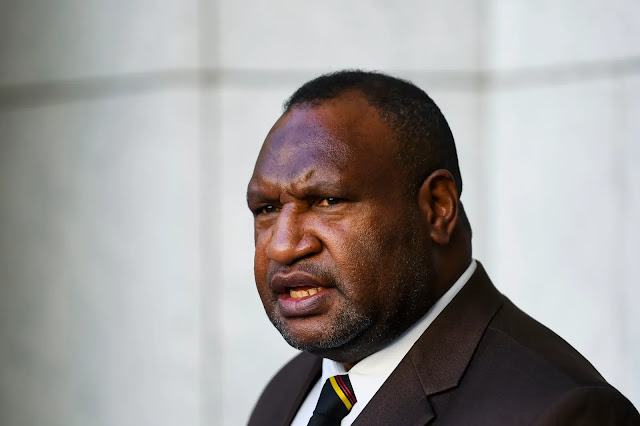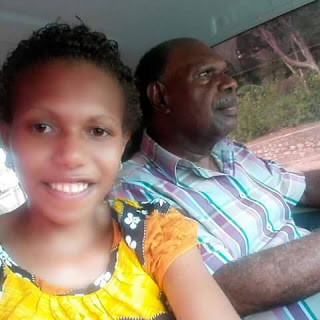Marape must rescue PNG now or never
By SEKINOLO SAWALA
JAMES Marape picked up the responsibility as Prime Minister of Papua New Guinea when the country was already on the brink of being a ‘failed state’.
Australia and the development partners have already labelled PNG as a failed state on many different occasions in the past. Amidst this rhetoric, Marape has to reposition the country back on course.
Pressures have been mounting from various strata of the society relating to socioeconomic, ethnic and political interests, most of which tend to challenge the very existence of PNG and his bold policy platform and the manifesto on taking back PNG.
Obviously, there is the pressure from the ordinary masses calling on Marape to sweep out the dirt and rid the government’s public service sector off corruption and put the country back in the right course. Then, there is the pressure from companies operating within PNG related to licensing, taxes, and associated economic interests. Also, there is pressure from politicians and political parties with their sets of demands and favours in return for their loyalty to him. Then there are pressures from institutions, NGOs, diplomatic, community and interest groups, Bougainville and from his own people of Hela.
First is the pressure from general public who are not yet convinced by Marape’s efforts to fight corruption in public service sector departments and institutions. Whilst he has had a good start by appointing corruption fighters to key government offices and availing himself before the UBS COI, he is still keeping CEOs, Department Heads, Politicians, Lawyers, Accountants, Advisors, and others who were part of the previous regimes involved in corruption at one point in time or another in one form or the other.
By keeping the bad people from being exposed and punished, he is keeping the lid tight on a can of worm. He has to fight corruption wholeheartedly by opening up the can of worms and leaving no stones unturned. He has yet to walk his talk on fighting corruption and taking back PNG out of this dreadful dilemma.
Some of the serious and yet outstanding cases of corruption include; MRDC and landowners’ funds, Manumanu land deal, Oil Search shares, APEC funds and assets, Gensets from Israel, Paraka Lawyers legal bill’s, cocaine drug burst, Works Department’s award of dubious contracts, PAC recommendations and the list goes on.
Marape must take some hard decisions whilst playing his card right. Get rid of the rotten apples before the entire bag of good apples smell foul and branded as bad. The more Marape holds onto corrupt people, the more they are likely to drag mud and dirt into his office and feet. And the time is quickly approaching for him to realise that keeping the crooks is unwise and fatal to his integrity.
Second is the pressure from companies regarding their economic interests in Porgera mine, Pn’yang gas, Papua LNG, Ok Tedi offshore funds, Cayman Island funds, Review of Existing Project Development Agreements, and other resource projects. As far as these projects are concerned, the ball is on Marape’s court to play it right. To take back PNG, it has to start with getting these projects back on PNG’s side. We have taken back Ok Tedi, Tolukuma, and Marape must add Porgera to the list and let it remain as his legacy.
Third is the pressure from within his coalition partners and middle bench politicians, all with their sets of demands and interests for Marape to honour and accommodate. One aspect of pressure from these politicians is demand for Marape to cover up their corruption cases in exchange for their loyalty to his regime. He must remain vigilant and selectively engage.
Fourth is the pressure from institutions such as for timely disbursements of school or educational budget subsidies and other funding aspects for government agencies to continue to function, including the mandatory allocation of district improvement grants and so forth. These pressures relate to social and development budgets which the government of the day must deliver.
Fifth is the pressure from diplomatic community on cross border issues of mutual interests such as the military forward base on Manus Island to be built by the Australian and American militaries and the pressure from China to allow its presence in PNG and the region. Marape has to weigh out the concerns raised by the Manus Islanders as against the geopolitical interests of foreign powers.
Sixth is the pressure from the Autonomous Region of Bougainville. Only one third of the total population on Bougainville voted for independence, in which 98% of the one third voted for separation. The other two thirds of the population abstained or had no access to the ballots. This majority who oppose independence fear repercussions and fear that the BRA militants will come back to destroy them when they are exposed to be on PNG side. Independence for Bougainville is not possible under PNG Constitution. They already have the necessary enabling powers and functions transferred and that’s more than enough of autonomy given.
Seventh, back at home, Marape has to accommodate the pressure coming in from his people of Hela and their plight for fair share of development whilst their son is on the throne. Their interests may range from funding of petty projects to grand development prospects. For instance, the Hela Treasury and Administration building needs to be funded to be fully completed, including public service housing and basic infrastructure projects for the new province. The issue of social decay caused by ethnic violence is ripe and prevalent. In February 2021 alone, about 100 people got killed, and 17 of which were in a single day. Many of these carnages remain unreported. Marape has to look in it as a critical issue.
Whilst so much pressure may relate to interests that can be managed, a big junk of this predicament definitely tend to challenge Marape and his government’s leadership capability and the ability to manage these pressures and challenges. And it must be done swiftly and strategically with great thought and energy, as much as maintaining the bold Policy platform of taking back PNG and elevating it to an affluent society.
Will Marape and his government survive the onslaught until 2022 or succumb to undue pressure? The best JMPM can opt for is to balance the equilibrium by slightly deviating from his own policy platform whilst maintaining his position to walk his talk, and importantly whilst keeping his numbers in the government above threshold.
The onus is on Marape to strike a balance in the equilibrium without having to deviate from his manifesto as well as without upsetting the coalition in his government. Above all, he has to sail the country out of downward trend and put it on course to our destiny of affluent society.
The one fact all citizens, stakeholders and partners of all categories must know is that PNG is a raw and virgin country and a lot of pioneering work needs to be done to get it developed. Be it in the area of roads and infrastructure, human resources and education, health, hygiene and disease control, business and wealth creation, social integration, interaction and participation, and governance and public administration and law and order and rule of law, there’s more that needs to be done.
At independence, 99% of PNG was still at primitive stage without outside contact and this scenario has been slightly changed and reduced to about 85% now. In other words, from the primitive world, our citizens are just coming into contact with modern civilisation thus cannot be graded or rated on a global development index as yet.
* Sekinolo Sawala is private consultant








Comments
Post a Comment
Please free to leave comments.